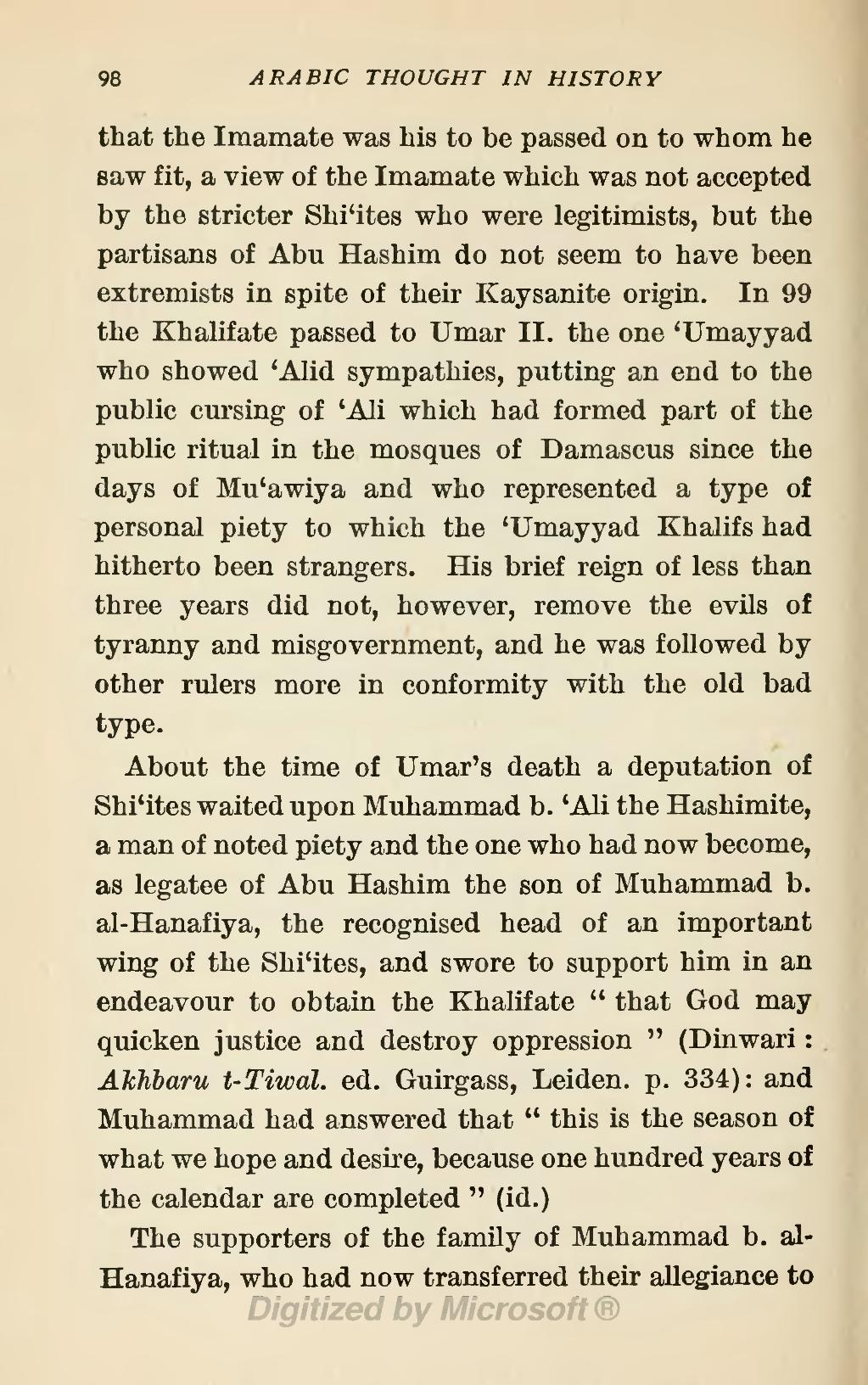that the Imamate was his to be passed on to whom he saw fit, a view of the Imamate which was not accepted by the stricter Shi'ites who were legitimists, but the partisans of Abu Hashim do not seem to have been extremists in spite of their Kaysanite origin. In 99 the Khalifate passed to Umar II. the one 'Umayyad who showed 'Alid sympathies, putting an end to the public cursing of 'Ali which had formed part of the public ritual in the mosques of Damascus since the days of Mu'awiya and who represented a type of personal piety to which the 'Umayyad Khalifs had hitherto been strangers. His brief reign of less than three years did not, however, remove the evils of tyranny and misgovernment, and he was followed by other rulers more in conformity with the old bad type.
About the time of Umar's death a deputation of Shi'ites waited upon Muhammad b. 'Ali the Hashimite, a man of noted piety and the one who had now become, as legatee of Abu Hashim the son of Muhammad b. al-Hanafiya, the recognised head of an important wing of the Shi'ites, and swore to support him in an endeavour to obtain the Khalifate "that God may quicken justice and destroy oppression" (Dinwari: Akhbaru t-Tiwal. ed. Guirgass, Leiden. p. 334): and Muhammad had answered that "this is the season of what we hope and desire, because one hundred years of the calendar are completed" (id.)
The supporters of the family of Muhammad b. al-Hanafiya, who had now transferred their allegiance to
